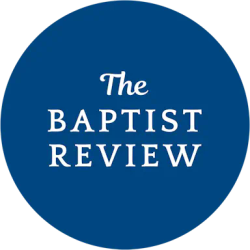This piece responds to Dr. Garet Robinson's post, "A Case for Financial Transparency." I appreciate Dr. Robinson's push for transparency and accountability within the Southern Baptist Convention entities. This post follows the recent release of the SBC’s Annual Ministry Reports and motions from the 2023 Annual Meeting. These motions requested entities to annually complete the IRS Form 990 – Return of Organization Exempt from Income Tax. Supporters of this effort have clarified they don’t want to disclose information that could jeopardize sensitive operations, like those of the International Mission Board, which has been a helpful clarification during this discussion.
While I agree on the importance of transparency and accountability for Southern Baptist entities, I urge caution against the somewhat alarmist tone of Dr. Robinson’s post. Phrases like “striking,” “dramatically,” “lack of transparency,” and “pattern of non-disclosure” overstate his argument. Cooperation cannot exist without trust, but it also is not helped by this kind of overstatement.
In reality, a significant amount of transparency already exists, and Southern Baptists have access to this information. Admittedly, gathering some data can be challenging due to its dispersion across multiple sources. This complexity is not unique to us but mirrors the situation in many non-profit and for-profit organizations.
Let's examine the available information sources:
- Annual Ministry Reports – Dr. Robinson mentioned these reports, which provide summary financial data among other information. These reports are not intended to encompass all reporting from the entities. These reports are compiled not at the entities' discretion but as requested by the Executive Committee. Though not exhaustive, they contain valuable insights. The 2024 Ministry Reports can be found here.
- Annual Meeting Book of Reports – Released by the Executive Committee before the Annual Meeting, this book is a crucial resource for attendees, offering access to entity reports alongside other vital information. The 2023 Book of Reports can be found here.
- SBC Annual – Post-Annual Meeting, the Executive Committee publishes the SBC Annual, a repository of the meeting's proceedings and the required audited financial statements of each entity, along with other entity data. The Annual for each gathering of the SBC back to her founding can be found here.
- Some Entity Annual Reports – Some entities issue their own Annual Reports, further detailing efforts to complete the ministry assignments given to them by Southern Baptists. For example, the 2023 Annual Report for Southeastern Baptist Theological Seminary (SEBTS) can be found here.
Exceeding ECFA Standards
Regarding financial accountability, the SBC’s Business & Financial Plan outlines governance and transparency standards. Dr. Robinson suggests entities seek accreditation from the Evangelical Council for Financial Accountability (ECFA). SEBTS had ECFA accreditation before the pandemic, but it was dropped to cut expenses during the pandemic, and we found it redundant given we along with all of the entities are required to adhere to the SBC's similarly robust standards, which align with or exceed ECFA’s seven standards.
Comparing ECFA standards with the SBC’s Business & Financial Plan:
- Standard 1 – Required Doctrinal Statement
While not covered by the Business & Financial Plan, all entities use the Baptist Faith & Message as most recently adopted by the SBC. - Standard 2 – Governed by a Responsible Board
The SBC Constitution and Bylaws require Boards for the entities. - Standard 3 – Financial Oversight
The Business & Financial Plan Section 13 addresses this standard. - Standard 4 – Use of Resources and Compliance with Laws
The Business & Financia Plan Sections 13 and 14. - Standard 5 – Transparency
The Business & Financial Plan Section 13(2) and 14. - Standard 6 – Compensation Setting & Related-Party Transactions
The Business & Financial Plan Section 13(2)(f). In addition, related-party transaction policies and transactions are reviewed annually by the external auditors. - Standard 7 – Stewardship of Charitable Gifts
Business & Financial Plan Sections 7, 8, and 9 and other laws address this issue.
As you can see, not all of the Business & Financial Plan’s 21 sections are referenced above, showing the SBC Business & Financial Plan goes even further than the ECFA standards.
While this does not apply to all of the entities, all of the six seminaries are accredited by a regional accreditor, either the Southern Association of Colleges and Schools – Commission on Colleges or their respective regional accreditor, as well as the Association of Theological Schools, that require that each entity comply with a significant list of financial, legal, operational, and academic standards.
I hope that what is communicated with all this information is that Southern Baptists are not in a situation where there is little to no transparency or accountability. Instead, there are significant standards by which the SBC entities must adhere to and information that they must provide. It is also important to understand that all these standards in the Business & Financial Plan are not ones that a secret group has approved but are the standards that have been approved by the messengers at past Annual Meetings of the SBC.
The Truth About Compensation Disclosures
Of course, the biggest source of contention is the compensation information that is included in Part VII of the IRS’ Form 990 titled “Compensation of Officers, Directors, Trustees, Key Employees, Highest Compensated Employees, and Independent Contractors.” This is not information that is publicly available from the SBC Entities. The SBC Business & Financial Plan in Section 14 states, “Members of cooperating Southern Baptist churches shall have access to information from the records of Southern Baptist Convention entities regarding…salary structures.” While not a specific list of salaries and benefits, this is information that members of a cooperating SBC church may contact the entities to receive.
It is true that in some churches, members have the compensation of their pastor in printed form. However, this is not a universal practice among churches. In many situations, that information is entrusted to the Finance or Personnel Committee, the Elders, Deacons, or another select group. Why many churches avoid going this route is that the information lacks context for many people. When work is done to set salaries at a specific amount based on comparable positions, the process is jeopardized when individuals make decisions that compensation is too much or too little simply based on feeling and improper anchor points and end up weaponizing the discussion. What Southern Baptists should be most concerned about, just like church members for their pastor in a local church, is if there is a well-thought out and adhered to process that uses objective information to provide fair compensation for a president or any other position.
The Role of Trustees in Ensuring Transparency
Some may still debate the wisdom of the entities publishing this compensation information, but we should not conclude either way that if that specific information is not published that there is little to no transparency between the entities and the members of cooperating SBC churches that so faithfully support the work of the entities. Significant financial transparency and accountability exists and has existed.
Southern Baptists have chosen to entrust the oversight of the entities to Boards of Trustees that they have elected. The cynical person might say, “what good has that done, look at what has happened at some entities in the past.” It is true that some entities have experienced issues of poor leadership and financial mismanagement at times. However, this does not devalue the entire Board of Trustees system, but serves as a reminder of their fiduciary responsibilities and their need to respond to these situations swiftly and with the implementation of better policies. It is important that Southern Baptists regularly communicate their expectation of the Boards to uphold their responsibility. We must resist the temptation to dismantle our own system of accountability through messenger-approved trustees. The best path to transparency is not to change our reporting standards, but to expect and insist upon robust trustee accountability.
Publishing information in the format of a Form 990, publishing salaries of the highest compensated employees, or additional accreditation through an organization like ECFA does not protect against financial mismanagement. If time and attention span would allow, we could list not-for-profit after not-for-profit that has failed the test of prudent financial management and even perpetuate fraud that was accredited by an outside organization, filed their 990s, and were “transparent.”
I would encourage more Southern Baptists to read the Ministry Reports, the Book of Reports, the SBC Annual, the requirements of the Business & Financial Plan, and review the great task that each Board of Trustees takes on to realize that we don’t have an argument on transparency vs non-transparency. Ways to improve the accessibility and readability of this information would be a wise discussion, but let’s move away from rhetoric that misrepresents how much transparency already exists, when there is an incredible amount of transparency that previous wise messengers to the SBC Annual Meeting have put in place. Given the wealth of financial information accessible to Southern Baptists, it's worth pondering whether the advocates for completing the Form 990 are truly seeking transparency or if they are leveraging the Form 990 as a means to distract and gain access to particular details, especially considering that most of the data required on that form is already public. Hopefully, this is not the case and that the situation is more of an unfamiliarity with what is available. It may be that the best result of this conversation is for the messengers of the Southern Baptist Convention to know how much information is already available to them.
Editor's Note: As a part of its commitment to fostering conversation within the Southern Baptist Convention, the Baptist Review may publish editorials that espouse viewpoints that are not necessarily shared by the TBR team or other contributors. We welcome submissions for responses and rebuttals to any editorials as we seek to host meaningful conversations about the present and future of our convention.


